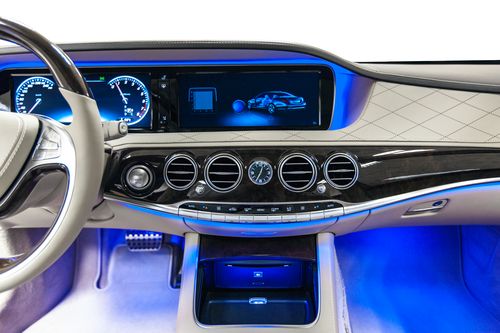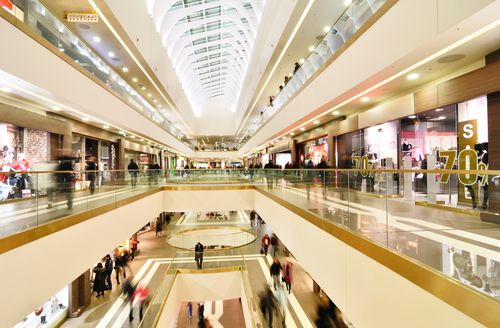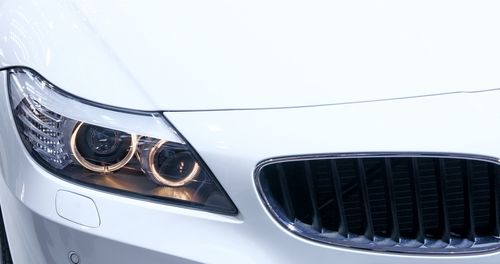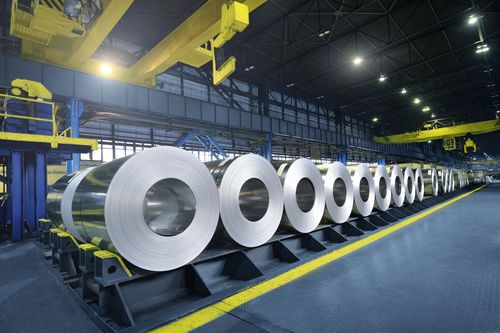Korea’s display manufacturers anticipate higher demand of OLED displays
Due to the auto industry’s shift to electric and self-driving vehicles, OLED displays are also increasingly being installed in models. Korea’s two largest display manufacturers, LG Display Co. and Samsung Display Co. could benefit from this. The value of global vehicle OLED production will expand from $49.72 million last year to $263.5 million in 2022. It is expected to reach as high as US$671.7 million by 2026. That’s according to an estimate by market watchers Omdia.

Screens in vehicles have recently become an important equipment feature, and although LCD displays continue to be predominantly used, demand from high-resolution large OLEDs has been on the rise. Premium manufacturers in particular are using OLED screens in their luxury vehicles to differentiate themselves from their competitors. LG Display has been producing so-called plastic P-OLEDs for use in vehicles since 2019, and the company’s market share is 92.5 percent in terms of total sales of the OLED automotive supplier market last year. In a distant second place is Samsung Display with only 6.9 percent. According to a company spokesperson, LG has a technology lead in this area and is now expanding its OLED offerings for the automotive industry.
Mercedes-Benz, among others, is one of LG’s customers and was already eagerly awaiting the market maturity of large OLED screens. The German automaker is unveiling the seventh generation of its S-Class sedan with LG screen technology this year, and the new EQS electric vehicle also has LG’s P-OLED display installed. Cadillac’s latest version of the Escalade SUV is equipped with an infotainment system that uses an LG 38-inch P-OLED display. Back in 2016, EV giant Tesla announced the introduction of LG OLED screens in its vehicles. To import or sell electronics in South Korea, they are subject to KC certification (also known as KC Mark). The KC-Mark or KC certificate is roughly equivalent to the European CE mark and applies to 730 different products. KC certification, or Korea Certification, is primarily about identifying and containing a potential risk to consumer health and safety. We will be pleased to provide you with non-binding advice regarding Korea Certification and would be delighted to carry it out for you.
If you need assistance or have any questions regarding Korean certifications like KC, KC EMC, KCs or KCs for explosion safety products, feel free to contact us any time.
Tel.: +49-69-2713769259
Email: info@korea-certification.com
Urgent questions?
Please do not hesitate to contact us via chat. You will find the chat window at the bottom right of each page (if this is not visible, please check your browser settings).
For more information you can download our free brochure “Korea Certification Made Easy – The Booklet“.
Korean retail sales up in spring
According to multiple sources, Korea’s three largest retailers, Lotte, Shinsegae and Hyundai saw their sales increase an average of 87 percent year-over-year during the first weekend of March. This random sample found that sales even slightly surpassed 2019 levels, when there was no Covid-19. Lotte, for example, saw a 9 percent increase, Shinsegae 14 percent and Hyundai 5.3 percent. Revenue was led by affluent customers buying luxury and electronic items after a large proportion of them had not made major expenditures for almost a year. In the lower price segment, new clothing and cosmetics were in high demand.

In Lotte shopping centers, cosmetics sales increased 91 percent, luxury items increased 143 percent, and home appliances and furniture increased 49 percent. Demand for cosmetics under the SKW100,000 or $87.5 threshold was stronger than ever. Consumers bought these more at shopping malls as duty-free stores remained closed and during the dry spring weather, many shoppers increased their use of skin care products. At Shinsegae Shopping Center, sales of luxury items climbed 109.9 percent and home appliances 75.7 percent. Sales of women’s clothing more than doubled. All figures are for the same period last year, the first weekend of March.
Convenience stores have also seen their wine sales increase recently. Many consumers are treating themselves to some luxury at home, as eating and drinking in restaurants is limited or impossible due to the pandemic.
Products made or imported in South Korea require Korea certification before sale. These can be consumer goods such as electronics, but food products also fall under these legal regulations. KC certification, or Korea Certification, is primarily about identifying and containing a potential risk to consumer health and safety. We will be pleased to advise you without obligation regarding a Korea Certification and would be delighted to carry it out for you.
If you need assistance or have any questions regarding Korean certifications like KC, KC EMC, KCs or KCs for explosion safety products, feel free to contact us any time.
Tel.: +49-69-2713769259
Email: info@korea-certification.com
Urgent questions?
Please do not hesitate to contact us via chat. You will find the chat window at the bottom right of each page (if this is not visible, please check your browser settings).
For more information you can download our free brochure “Korea Certification Made Easy – The Booklet“.
Mercedes-Benz and BMW surpass minor Korean automakers
For the first time, Mercedes-Benz and BMW outperformed smaller Korean automakers in sales figures. Therefore, the dominance of Hyundai Motor Group and the two German manufacturers in the South Korean car market continues to increase. According to the Korean Vehicle Import and Distribution Association, the local companies of Mercedes-Benz and BMW each sold 5,707 and 5,660 vehicles, respectively, last month. That represents year-over-year growth of 18.5 percent and 48.5 percent, respectively.

As recently as February 2020, GM Korea was able to sell 5,098 vehicles, while Renault Samsung and Ssang Yong totaled 3,900 and 2,673, respectively. GM Korea was able to surpass both Mercedes-Benz and BMW in sales at the time, but within a year, circumstances changed drastically. The declining sales of Korean automakers began as early as 2018, when foreign brands launched a variety of new models as well as offered attractive discounts. As a result, more and more buyers opted for an imported vehicle. South Korea is currently the largest sales market for the E-Class and 5 Series. Due to the good sales figures, foreign automakers are planning to increase their investment in South Korea to take advantage of the good market situation.
Many products require a certification such as the KC certification in order to be approved for the Korean market. MPR International GmbH will be pleased to advise you on Korea certification in the automotive sector. We have already successfully assisted many large automotive suppliers and vehicle manufacturers with locations in Korea with their certification projects and have been supporting these companies for several years.
If you need assistance or have any questions regarding Korean certifications like KC, KC EMC, KCs or KCs for explosion safety products, feel free to contact us any time.
Tel.: +49-69-2713769259
Email: info@korea-certification.com
Urgent questions?
Please do not hesitate to contact us via chat. You will find the chat window at the bottom right of each page (if this is not visible, please check your browser settings).
For more information you can download our free brochure “Korea Certification Made Easy – The Booklet“.
Korean steel producers confident: Demand and prices on the rise
According to industry sources, Korea’s largest steelmaker Posco has now postponed repair work at its 3rd cold-rolled steel production facility in Gwangyang, South Jeolla Province until April to meet rising demand. The work was originally scheduled for mid-March. Cold-rolled steel is processed with presses at room temperature and has a smooth surface. It is mainly used for vehicles, household appliances and steel pipes. Another company, Hyundai Steel, had also postponed maintenance and repair work earlier this year to ramp up production.

Posco raised prices for hot-rolled steel sheets for the third time, from $72 per ton in January to $89 in February and again in March to $134. Hyundai Steel also plans to raise its prices by $45 per ton. According to the Ministry of Trade, Industry and Energy, the price of iron ore at China’s Qingdao port rose US$10 from earlier this year to US$176 per ton. An anonymous industry official said market conditions for Korean steelmakers have improved due to reduced imports from China. The Chinese economy is recovering faster than predicted from the effects of the Covid 19 pandemic and therefore needs more steel domestically. Steel demand is also stable in other countries as companies steadily recover from the previous economic slump.
Another industry representative said that demand for steel sheets will continue to rise and prices will climb accordingly. He cited higher consumption from the automotive industry and vessel construction as the reason. The trend points to more environmental friendliness: In the automotive industry, more and more new vehicles are being built with electric drivetrains, and gas engines are being used in shipbuilding. An increase in sales of electrical appliances in the domestic and entertainment sectors is also resulting in higher demand for cold- and hot-rolled steel.
Demand for steel and prices could continue to rise. Recently, the Korean government announced plans to build an additional 836,000 housing units by 2025. The price of steel scrap for further processing into flat steel and castings also rose sharply in February. Steel products in South Korea require certification with the KC mark or KC certificate, which is roughly equivalent to the European CE mark and currently applies to 730 different products. MPR International GmbH – Korea Certification is available to answer your questions regarding Korea certification at any time without obligation.
If you need assistance or have any questions regarding Korean certifications like KC, KC EMC, KCs or KCs for explosion safety products, feel free to contact us any time.
Tel.: +49-69-2713769259
Email: info@korea-certification.com
Urgent questions?
Please do not hesitate to contact us via chat. You will find the chat window at the bottom right of each page (if this is not visible, please check your browser settings).
For more information you can download our free brochure “Korea Certification Made Easy – The Booklet“.



